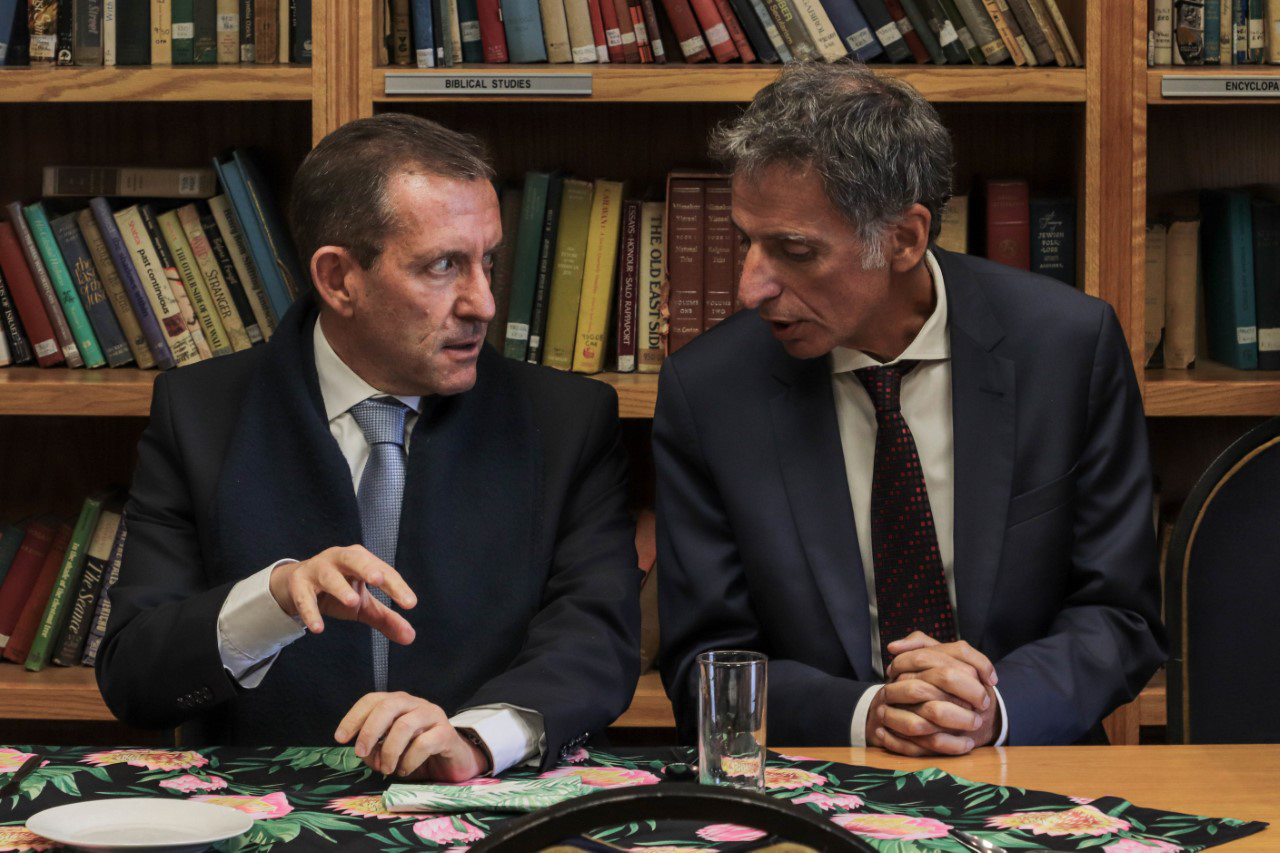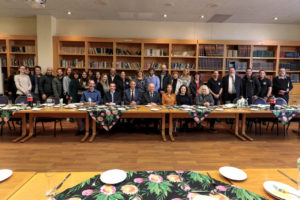
World

Reverberations of AMIA bombing felt around Jewish world
“It was one of the deadliest attacks on the Jewish community since World War II, and remains the deadliest terrorist attack in Argentinian history,” said Harold Jacobs, the chairperson of the South African Jewish Board of Deputies (SAJBD) Gauteng Council at the commemoration of the tragic terror attack on the headquarters of the Asociación Mutual Israelita Argentina (AMIA) 28 years ago.
Eighty-five people were killed and more than 300 injured after a bomb-laden van was driven into AMIA, the Jewish community centre in the heart of Argentina’s capital of Buenos Aires, on Monday, 18 July 1994.

The South African Jewish community commemorated the attack for the first time on 26 July at Beyachad, Johannesburg. The event was organised by the SAJBD in partnership with the Argentinian embassy to pay tribute to the victims of one of the most tragic and traumatic events in modern Jewish history.
“The AMIA tragedy was a watershed event,” said Jacobs. “While it impacted directly on the Argentinian Jewish community, its reverberations were felt throughout the Jewish world. What happened that day in July 1994 brought home to Jewish communities throughout the diaspora how vulnerable they were to being similarly targeted and the urgent need therefore to provide for their own security.
“What happened in Buenos Aires could have happened anywhere. Taking this lesson to heart, diaspora Jewry has since taken extensive steps to ensure that appropriate security measures are in place at Jewish communal installations and community events.
“Another critical lesson we need to learn from the AMIA bombing is for the civilised world as a whole to take a firm stand against extremist ideologies. Terrorist atrocities occur when people are radicalised, indoctrinated, and taught to hate to the extent that they aren’t just willing to take the lives of innocent people but even sacrifice their own lives to achieve that end. To defeat these evil ideologies, humanity needs to work together to build a culture of tolerance and respect for the sanctity of human life.”
The Argentinian ambassador to South Africa, Claudio Pérez Paladino, said, “For the past 28 years, our country has sought justice. We have organised and participated in commemorative events. The president wants to keep the memory alive, both in Argentina and in other countries. Argentina won’t cease in its objective to see all those implicated in the attack brought before Argentine courts for questioning and, if appropriate, sentencing and conviction. The Argentine republic continues to demand that the Islamic Republic of Iran co-operate with judicial investigation of the attack.”
Paladino said international co-operation could lead to those responsible being identified and prosecuted.
Recalling the day of the attack, Anita Weinstein, a survivor, said, “We were taking care of all the preparations to celebrate the 100th anniversary of AMIA, an institution that started when Jewish immigrants started coming to Argentina. Over all of these years, AMIA became a central building, a central organisation for the Jewish community. That Monday, I remembered that I had to go and find out something, so I stood up and went to the rear of the building. At the same minute I got there to talk to another person, the lights went off. We started to cry and shout, ‘What happened, what happened?’ Maybe the building was bombed or exploded. We couldn’t imagine that this would be another bombing in the Jewish community. [Two years earlier, a suicide bombing of the building housing the Israeli embassy of Argentina, located in Buenos Aires, resulted in 29 civilians killed]. Luckily, we found a door to get out into the open air, a few of us, maybe 10. Through a ladder, we could go up and stay there. In that place, I saw a young woman breastfeeding her baby. I’m very moved when I speak about this. When I saw that, I understood that this image of this young girl saving her little baby was a connection with life. It made me understand and make a decision that I would continue with my life. I would continue working with AMIA, I would continue being active in Argentine society and in many other places. As my mother had taught me, my parents were survivors of the Shoah. They created a family and my mother worked in a Jewish organisation.”
A video playing during the commemoration showed people bleeding, crying, and being carried on stretchers around AMIA in the hours after the attack. “Many of those who were standing together with me were shouting, calling for their wife or husband who was working in AMIA,” recalled Weinstein. “We understood that they wouldn’t be able to answer.”
She said it was difficult to tell them that it would take time to recover the bodies of their beloved families. “It was a very difficult moment for me and for everybody. But I was convinced that I would keep working in a good way for the Jewish community in Argentina.”
One image Weinstein remembers is that of the man driving the van that hit AMIA. “I cannot understand how he could take the van and enter the building. He was one of the victims of course. Also, I’m very moved when I remember how much people helped us.”
Weinstein said the worst part of the attack has been the lack of justice. “We know investigations took place from all sides. It’s known who planned it, who paid for it, and how they researched months before. But this information isn’t leading to justice being served. Nobody has gone on trial.”
Wendy Kahn, the national director of the SAJBD, went with Mary Kluk, the national vice-president of the SAJBD, to attend the 2016 World Jewish Congress plenary in Buenos Aires. “We went to a commemoration at the AMIA centre,” recalled Kahn. “It was a very sobering experience for both of us. It meant so much in terms of being with the community which had been through this horrific attack and hearing some of the witnesses.”










